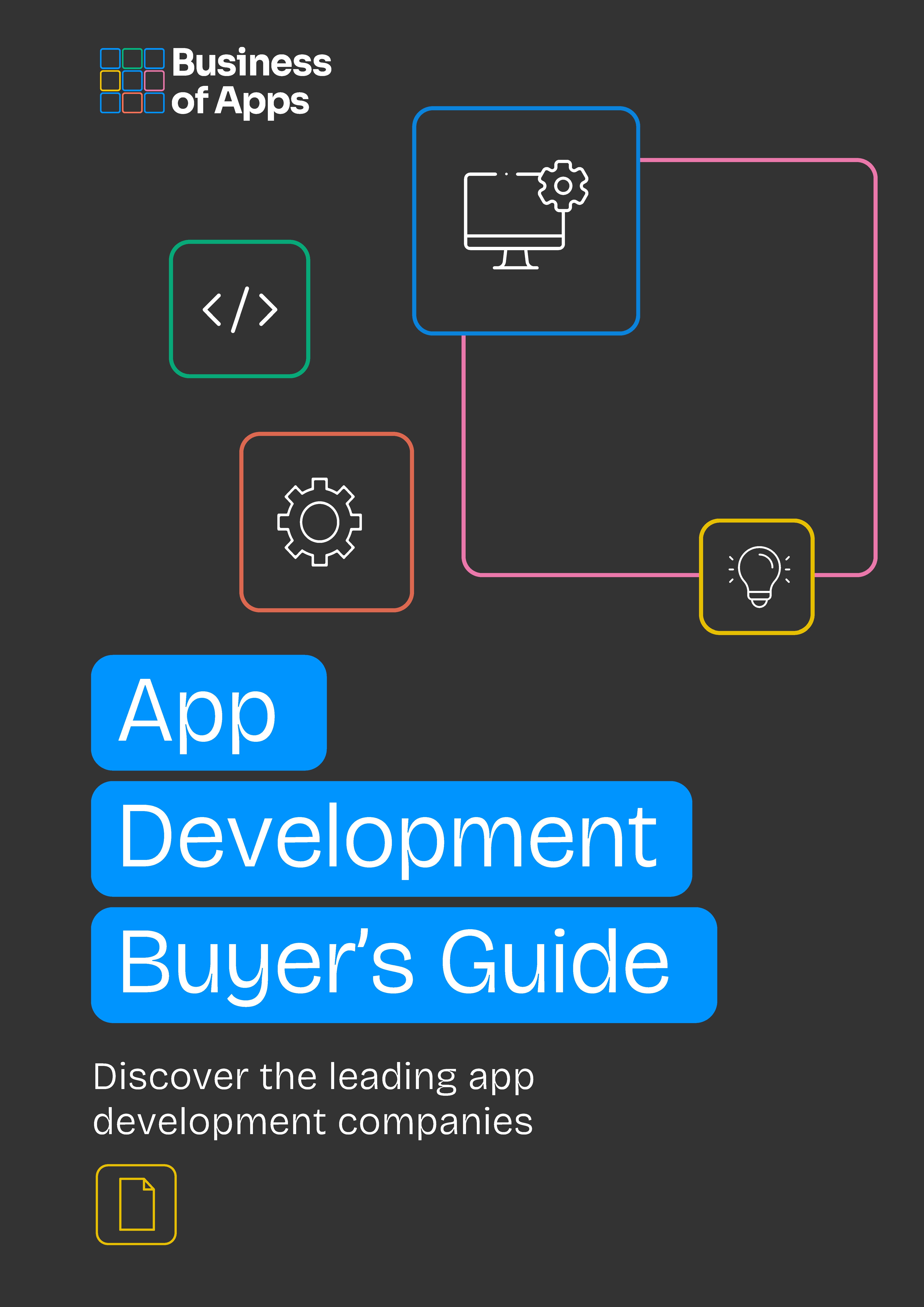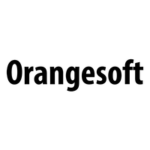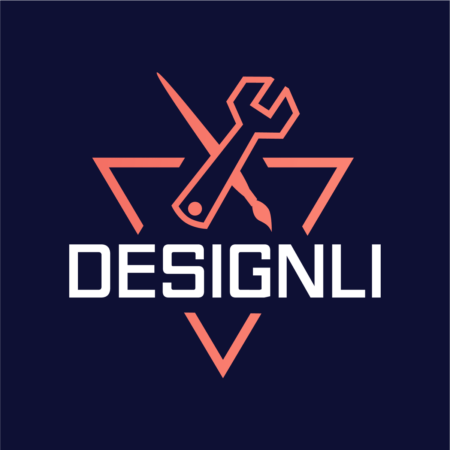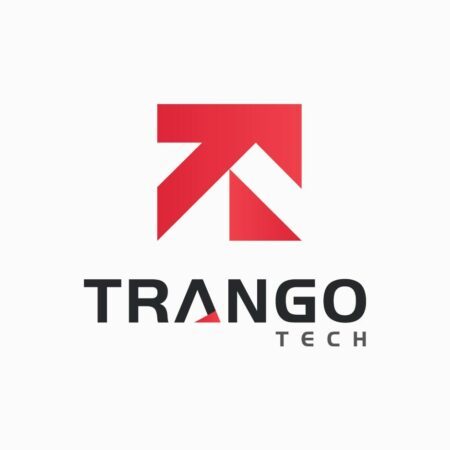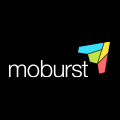The best retail app development services, how much they cost, top app development features, and how you stand to benefit from using app development companies. This guide will cover them all.
Retail apps are mobile apps designed to help retailers and brands connect with customers, improve shopping experiences, and manage sales. They provide a digital storefront where users can browse products and purchase them straight from their mobile devices. Retail apps cater to both the online and in-store shopping experience, and many are designed to combine both of these.
The importance of developing retail apps speaks for itself. The market size of the retail app industry was $3.8 trillion in 2023, an increase of 8% from the previous year. This is expected to double by the end of the decade, led by maturing markets in South-East Asia and Latin America.
Yet building and developing successful retail apps requires a number of must-have features to be implemented.
For example, advanced filters that allow users to filter by category, price, brand, and ratings, as well as real-time stock updates so your customers know whether items are in (or out) of stock.
That’s without mentioning the importance of encrypted and secure payment gateways to protect user data. In other words, it can be tough to know where to start if you’re entering the world of retail app development.
Don’t fret; we’ll cover everything you need to know.
What is retail app development?
Retail app development is the process of designing, creating, and deploying mobile apps for retail businesses. The apps are built to provide a convenient and personalized shopping experience for customers on their mobile devices.
Retail app development combines aspects of eCommerce, digital marketing, user experience design (known as UX), and advanced tech like AI, machine learning, and augmented reality (known as AR).
Retail app developer example
 Source: Pixelfield
Source: Pixelfield
Retail app development starts with understanding the market, the target audience, and your competition. Market research helps define the app’s features, target user base, and USPs to stand out from your competitors.
The most effective retail apps focus on intuitive navigation, ease of use, and visually appealing interfaces. The UI design is key to keeping users engaged, making it easy for them to browse, add items to their cart, and complete purchases.
The best retail app developers
Retail app developers are professionals or teams that design, build, and maintain mobile apps that are tailored for retail businesses. These apps serve various functions, such as enhancing customer shopping experiences, streamlining inventory management, enabling secure transactions, and integrating loyalty programs.
Developers use technologies like Swift and Kotlin for native apps or frameworks such as React Native and Flutter for cross-platform solutions. Their goal is to create user-friendly, efficient, and scalable apps that drive sales and customer engagement.
We’ve listed the best retail app developers below.
1. Light IT Global

Light IT Global is an app development company that delivers innovative web and mobile solutions for startups and enterprises. With over 18 years of experience, they have completed over 500 custom projects.
A leading European fashion retailer partnered with Light IT Global to develop a seamless omni-channel shopping app that would unify their brick-and-mortar stores with their growing eCommerce presence. The retailer struggled with inconsistent inventory tracking, long checkout times, and limited personalization.
Light IT Global designed and developed a smart retail app that integrated real-time inventory management, personalized recommendations, and a frictionless checkout experience. The app allowed customers to scan items in-store, check availability in nearby locations, as well as receive (tailored) product suggestions based on their preferences.
Overview
Light IT Global was founded in 2006 in Ukraine. The company began as a small team of three individuals engaged in reconstructing local historic landmarks. Over time, it transitioned into a software engineering firm, expanding its services to include web and mobile development.
Light IT Global employs over 100 professionals and has completed over 500 custom client projects worldwide.
Services
Light IT Global provides its customers with the following services:
- Developing robust, secure, and scalable retail platforms that integrate with payment gateways
- Crafting intuitive and visually appealing designs that enhance the user experience and boost engagement
- Designing and building retail mobile apps for iOS and Android
2. Intellectsoft

Intellectsoft is a software development company specializing in custom software solutions, mobile app development, enterprise mobility solutions, and blockchain development services. The company serves a diverse range of industries, including healthcare, finance, retail, and manufacturing.
Intellectsoft collaborated with a prominent clothing and accessories retailer to enhance customer engagement through a targeted loyalty application. The initiative aimed to offer a tailored shopping experience, offering customers exclusive discounts and personalized promotions.
The solution itself involved developing an Android app that leveraged Bluetooth tech to deliver promotional content directly to customers’ mobile devices. Within six months, app-driven promotions and personalized recommendations led to a significant revenue boost with a 50% growth in customer retention.
Overview
Intellectsoft was founded in 2007 by Alexander Skalabanov, Artem Kozel, and Valery Kurilov. Headquartered in Miami, Florida, the company has expanded its presence with offices in New York, London, and Oslo.
Intellectsoft has delivered over 600 digital products to clients worldwide, including Fortune 500 companies and established brands. The company’s services encompass strategic IT consulting, customer experience design, development, and (full) lifecycle management of custom software products and apps, as well as system integration.
Services
Intellectsoft provides its customers with the following services:
- Building tailored software solutions for enterprises, including web, mobile, and cloud-based retail apps
- Designing and developing high-performance iOS, Android, and cross-platform mobile retail apps
- Helping businesses modernize IT infrastructure, optimize processes, and implement emerging technologies
3. Trango Tech

Trango Tech is a tech services and app development company aimed at helping businesses enhance their digital presence, streamline operations, and innovate their product offerings.
A leading electronics retailer partnered with Trango Tech to develop a feature-rich retail app aimed at enhancing customer engagement, streamlining in-store experiences, and boosting online sales. The app integrated smart recommendations, a virtual assistant, and real-time inventory tracking to create a seamless omnichannel shopping experience.
Within the first six months, app-driven promotions and a personalized shopping experience significantly boosted online revenue with a 60% growth in customer retention.
Overview
Trango Tech was founded in 2017. The company was established with the goal of providing innovative tech solutions, particularly in the areas of restaurant mobile app development, web development, and IT consulting.
Since its founding, Trango Tech has worked with clients across various industries to help them build custom software solutions that meet their business needs.
Services
Trango Tech provides its customers with the following services:
- Offers cloud-based solutions for data storage, scalability, and infrastructure
- Provides customized retail platforms to help businesses sell products online
- Develops software that enhances enterprise-level systems and helps with automation, integration, and the management of data
4. App Maisters

App Maisters specializes in retail mobile app development and digital solutions. The company can develop apps that meet the specific needs of larger organizations.
App Maisters partnered with LuxeTrend, a high-end fashion retailer, to develop a cutting-edge mobile shopping app designed to provide a seamless and personalized shopping experience.
The solution included a secure, scalable backend system for high traffic, real-time inventory updates, and a fast, one-tap checkout process with multiple payment options. As a result, LuxeTrend saw a 40% increase in mobile sales and a 25% improvement in customer retention within the first six months post-launch.
Overview
App Maisters was founded in 2017 by Fahim Iqbal, the current CEO. Under Iqbal’s leadership, App Maisters has grown and established itself in the app development industry, helping companies across various sectors build innovative mobile apps.
App Maisters has worked with a variety of clients, including brands such as PepsiCo, ExxonMobil, and Shell.
Services
App Maisters provides its customers with the following services:
- Crafts intuitive, attractive, and functional retail app designs
- Builds retail apps that work across multiple platforms (iOS and Android) using frameworks such as Flutter, React Native, and Xamarin
- Develops prototypes to visualize the retail app before full-scale development begins
5. Orangesoft

Orangesoft is a mobile app and web development company that creates custom software solutions for businesses. The company serves various industries, helping clients build high-quality digital products.
Orangesoft partnered with a leading fashion retailer, to develop a custom mobile app aimed at enhancing the customer shopping experience and boosting sales.
The result was a 30% increase in user engagement and a 25% growth in in-app purchases within the first three months post-launch. The app also helped reduce cart abandonment rates by 15%, thanks to features such as one-click checkout and simplified payment options. Additionally, the retailer saw a 40% increase in customer retention due to the app’s personalized shopping experience and loyalty rewards.
Overview
Orangesoft was founded in 2011 by Dmitry Zolotukhin and Alexander Vinogradov. They established the company to provide custom software solutions, focusing on mobile app development as well as web development.
Orangesoft has worked with several key clients, including Yandex, Kaspersky Lab, Revolut, and OZON.
Services
Orangesoft provides its customers with the following services:
- Real-time retail transaction syncing and account linking for mobile apps
- Building robust back-end systems with Node.js, Python, Ruby on Rails, and other server-side tech
- Using frameworks like React Native and Flutter to develop new retail apps that work on both iOS and Android
6. NMG Technologies

NMG Technologies is an app development company that offers a wide range of services, including web and mobile app development, fintech solutions, custom software development, and digital marketing.
NMG Technologies partnered with a popular retail brand specializing in accessories to create a next-generation mobile shopping app. The primary goal was to enhance the user experience by offering seamless navigation, personalized recommendations, and a smooth checkout process.
NMG Technologies incorporated advanced algorithms to personalize product suggestions based on browsing history and preferences, as well as integrating augmented reality (known as AR) features to allow customers to visualize products virtually. The impact was immediate, with a 35% increase in conversion rates within the first quarter after launch. Customer engagement improved by 40%.
Overview
NMG Technologies serves a global client base that includes startups, SMEs, and large enterprises. The company strongly emphasizes quality, timely delivery, and customer satisfaction.
Their client base spans various industries, including healthcare, finance, retail, and education.
Services
NMG Technologies provides its customers with the following services:
- Custom retail platform development using advanced tools and years of experience
- Development of native and cross-platform retail mobile apps for iOS and Android
- Focuses on creating user-friendly, scalable retail apps tailored to the client’s specific needs
7. Designli

Designli is a software development firm that offers a comprehensive range of services, including UX/UI design, mobile app development, web app and cross-platform development. Their approach focuses on delivering high-quality, user-friendly solutions tailored to meet the specific needs of their clients.
Designli collaborated with EcoHome, a retailer specializing in sustainable home products, to create a mobile app aimed at improving customer experience and driving digital sales.
The retailer needed a solution that could provide users with an easy-to-navigate platform to browse and purchase eco-friendly products while incorporating sustainability-focused features. The app needed to reflect their brand values by offering product details, origins, and environmental impact metrics such as carbon savings for every purchase.
The resulting mobile app delivered a seamless shopping experience, with an integrated rewards system for customers purchasing sustainable products.
Overview
Designli was founded in 2013 by Joshua Tucker and Keith Shields. The company is based in Greenville, South Carolina, and provides design and development services, particularly for custom mobile and web apps.
Services
Designli provides its customers with the following services:
- Offers professional design services to craft intuitive and visually appealing user interfaces for retail apps
- Helps clients define their product goals, target users, and market strategies
- Builds retail apps that work across multiple platforms, ensuring broad accessibility and functionality
What is an example of a retail app?
Retail apps come in many different forms, with both mobile and web platforms catering to different needs. The key apps typically include the following:
- Amazon (B2C): Allows consumers to shop for a wide range of products, from electronics to clothing, with options for order tracking, product recommendations, and customer reviews
- Nike (B2C): This app allows consumers to shop for athletic products and access personalized workout recommendations, exclusive member rewards, and early access to new product launches
- Walmart (B2C): Offers a wide range of products with options for online purchase, in-store pickup, and grocery delivery. Includes features like store maps and inventory checks
- IKEA (B2C): Allows consumers to browse and shop for furniture and home goods, with an AR feature for seeing how products look in their space
- Costco (B2C and B2B): Allows individual members and business account holders to purchase products in bulk with member-only pricing. Businesses can buy supplies
- Grainger (B2B): Provides commercial equipment and supplies for businesses. Includes inventory management features and allows bulk purchases with business pricing
Retail app developer example
 Source: EPAM
Source: EPAM
Keep in mind that most retail apps are B2C and aim to reach individual users, but they often incorporate B2B features or business models that diversify revenue streams.
The ultimate aim, of course, is to pick the right retail app for you, so take the time to get this part right.
App Development Buyer's Guide
Download our App Development Buyer’s Guide to get a full list of the best service providers on the market to choose from. You will also learn about types of app developers, different app development platforms, app developer locations, app development costs, how to select the right one for your business, as well as the questions to ask any of those companies you will be evaluating.
What does a retail app development company do?
A retail app development company specializes in creating custom mobile apps that are tailored for businesses, enabling them to reach customers, streamline shopping experiences, and boost sales through mobile platforms.
Here’s a quick breakdown of what these companies typically do:
1. Market research and strategy planning
A retail app development company begins with thorough market research and strategy planning to understand the client’s goals, target audience, and competitive landscape.
This research phase includes identifying customer preferences, competitor strengths and weaknesses, and current trends in the retail industry.
2. User experience and user interface design
Once the strategy is clear, the development company moves to design the app’s user experience and user interface. This involves creating a visually appealing, intuitive design that provides a seamless user journey from browsing products to completing purchases.
Design experts work to balance aesthetics with usability, creating a layout that simplifies navigation and enhances overall engagement.
Retail app developer example
 Source: Vincit
Source: Vincit
3. Core development and feature integration
In this phase, the company’s developers work on building the app’s core functionality, focusing on features like product catalogues, shopping carts, payment processing, and order tracking.
They also incorporate more advanced features, such as personalized recommendations, push notifications, and loyalty programs.
4. Testing and quality assurance
Before releasing the app, it undergoes rigorous testing and quality assurance to identify and resolve any issues. The QA team tests the app’s functionality, security, and performance, ensuring it works under various scenarios, including high traffic and different user behaviours.
They also test for device compatibility, usability, and data security. Testing includes both automated and manual processes.
5. Launch, maintenance, and ongoing support
Once testing is complete, the company assists with the app’s launch on platforms like the App Store and Google Play Store, handling all necessary submissions and compliance requirements.
Following the launch, the development company provides ongoing maintenance and support, including updates for new OS versions, bug fixes, and feature enhancements.
How do retail apps work?
Retail apps function as a digital platform for consumers to browse, select, and purchase products (or services) from retail businesses directly from their mobile devices. At their core, these apps connect users to a vast product catalogue, which is often organized into categories and subcategories for easy navigation.
Once users find products they wish to purchase, they can add these items to their shopping cart. The shopping cart functionality allows users to view selected items, adjust quantities, or remove items as needed before proceeding to checkout. The checkout process is streamlined for convenience, often allowing users to save payment information for one-click purchasing.
Payment options may include credit and debit cards, digital wallets, and, in some cases, buy-now-pay-later services.
Retail app developer example
 Source: Saffron Tech
Source: Saffron Tech
In addition to facilitating purchases, retail apps often include features that enhance customer engagement and loyalty. For instance, users may receive personalized recommendations based on their shopping habits, notifications about sales or promotions, and access to exclusive deals for app users.
On the backend, retail apps are supported by key infrastructure that manages product inventory, user accounts, and transaction processing. Integration with inventory management systems ensures that product availability is reflected in the app, reducing the chances of customers ordering out-of-stock items.
What are the benefits of retail app development?
Developing a retail app offers numerous advantages for businesses, enhancing their visibility, engagement, and profitability in a highly competitive digital landscape.
Here are some of the key benefits of retail app development:
1. Enhanced customer engagement
Retail app development significantly enhances customer engagement by providing a direct communication channel between the retailer and the consumer.
Through personalized notifications, promotions, and targeted marketing strategies, retailers can reach customers with relevant offers and updates.
2. Improved shopping experience
A well-designed retail app offers a seamless and user-friendly shopping experience.
Features such as intuitive navigation, advanced search filters, and high-quality product images allow customers to easily browse and find products that meet their needs.
3. Increased sales and revenue
Retail apps can drive significant increases in sales and revenue. The mobile nature of retail apps means that consumers can shop during their commute, at home (or while waiting in line), making it easier to capture impulse purchases.
Additionally, apps can integrate loyalty programs and personalized offers, which incentivize repeat business and encourage customers to spend more.
Retail app developer example
 Source: ENO8
Source: ENO8
4. Access to customer insights
Retail apps provide businesses with access to valuable customer data and insights. Retailers can track user behaviour, preferences, and purchasing patterns.
This data enables you to make informed decisions about inventory management, marketing strategies, and product offerings.
5. Competitive advantage
In a crowded retail landscape, having a dedicated mobile app can give businesses a competitive edge. Many customers prefer shopping through apps due to the convenience and enhanced features they offer compared to traditional websites.
An effective app can position a brand as innovative and customer-centric, appealing to tech-savvy consumers and enhancing overall brand perception.
6. Streamlined operations and inventory management
Retail apps can improve internal operations and inventory management by integrating back-end systems.
This integration facilitates efficient order processing and fulfilment, allowing retailers to manage logistics and customer service more effectively.
7. Enhanced customer support
Retail apps can enhance customer support by offering users various self-service options and direct access to support channels.
Features such as chatbots, FAQs, and live chat enable customers to resolve issues before contacting customer service representatives directly. This immediacy not only improves the user experience but also frees up support staff to handle more complex inquiries.
In summary, retail app development offers a range of benefits that help businesses enhance both their visibility and engagement with users.
What are the must-have features of retail apps?
Successful retail apps stand out in a competitive market by offering features that enhance user engagement and satisfaction.
Below are key features that contribute to the success of retail apps:
User-friendly interface
A retail app must have a user-friendly interface that prioritizes ease of navigation.
This includes intuitive layout design, clear categories, and simple access to essential features.
Advanced search functionality
Search functionality is essential for helping users quickly find products. Features such as keyword search, voice search, and filters enhance the user experience.
Autocomplete suggestions and related product recommendations can further streamline the search process.
Shopping cart and checkout process
An efficient shopping cart and checkout process are critical for converting potential buyers.
Features such as guest checkout options, saved payment methods, and multiple payment gateways (credit cards, digital wallets) facilitate quick and secure transactions, reducing cart abandonment rates.
Product catalogue with rich media
A comprehensive product catalogue showcasing a variety of items is vital for retail apps.
High-quality images, videos, detailed descriptions, and customer reviews help customers make informed decisions. This includes user-generated content, such as photos and reviews.
Retail app developer example
 Source: MaxSoft
Source: MaxSoft
Personalized recommendations
Personalized product recommendations based on user behaviour and preferences can enhance the shopping experience.
Utilizing AI algorithms, the app can suggest items that align with the customer’s past purchases and browsing history. This feature not only improves customer satisfaction but also increases the likelihood of additional sales.
Customer loyalty programs
Integrating customer loyalty programs directly into the app encourages repeat business (and customer retention).
Features such as reward points, exclusive offers, and special discounts for app users create a sense of belonging and incentivize purchases.
Push notifications
Push notifications serve as an effective way to engage users and keep them informed about promotions, new products, and personalized offers.
Timely notifications can remind users about abandoned carts, special discounts, or restocks of previously viewed items.
Customer support integration
A retail app should offer customer support features to address user inquiries quickly and efficiently.
Having a dedicated support section within the app helps foster trust and enhances the overall shopping experience, allowing users to feel supported throughout their buying journey.
How much does it cost to develop retail apps?
The cost of developing a retail app can vary widely depending on several factors, including the app’s complexity, features, and the location of the development team.
Here’s a general overview of estimated costs by country:
- US: $50,000 to $250,000
- Canada: $30,000 to $150,000
- UK: $40,000 to $200,000
- Germany: $40,000 to $200,000
- Australia: $40,000 to $200,000
- India: $10,000 to $50,000
- Ukraine: $20,000 to $100,000
- Philippines: $15,000 to $70,000
- Brazil: $20,000 to $90,000
- South Africa: $25,000 to $100,000
The average cost of building a retail mobile app depends on the app’s complexity–more features will mean a higher price.
It’s always worth contacting the retail app development company beforehand for an estimate.
What are the main challenges of retail app development?
Developing retail apps can be a rewarding venture, but it also comes with various challenges that app developers and companies must navigate to ensure success.
These challenges can impact the app’s quality, user engagement, and overall market competitiveness.
Below are the five main challenges faced in retail app development.
User experience design
Creating an intuitive and engaging user experience is a significant challenge in retail app development.
Designers must ensure that the app is visually appealing, easy to navigate, and provides a seamless shopping experience at all times.
Integration with existing systems
Integrating the retail app with existing back-end systems, such as inventory management, customer relationship management (known as CRM), and payment gateways, can be complex.
Developers must carefully plan and execute these integrations to ensure operations proceed smoothly.
Retail app developer example
 Source: SmartTech
Source: SmartTech
Security and data privacy
Security and data privacy are paramount concerns in retail app development. Retailers must protect sensitive customer information, such as payment details and personal data, from breaches and cyberattacks.
Implementing security measures, such as encryption, secure payment gateways, and compliance with regulations such as GDPR requires ongoing attention (and resources).
Keeping up with tech trends
The retail landscape is rapidly evolving, and keeping up with the latest tech trends is challenging for developers.
Retail app developers must stay informed about emerging tech to remain competitive and meet ongoing and emerging customer expectations.
Ensuring cross-platform compatibility
Developing a retail app that functions seamlessly across various platforms (iOS, Android, Web) poses a challenge. Each platform has its own design guidelines, functionalities, and user behaviours.
Developers must, therefore, test extensively to ensure that the app performs well on all platforms and screen sizes.
Work with top retail app development companies
To recap, the most critical reasons for having a retail app are the following:
- Retail apps provide customers with the ability to shop anytime and anywhere
- Apps enable tailored shopping experiences through personalized recommendations and offers
- Integrating loyalty programs and rewards within the app encourages repeat purchases
- Retail apps facilitate direct customer communication through push notifications
- Apps provide valuable customer data and analytics, allowing retailers to understand purchasing patterns
There are a number of app development companies that take on retail app development projects and have app developers with experience specifically catered to these apps.
Below, we’ve put together a list of the best.









